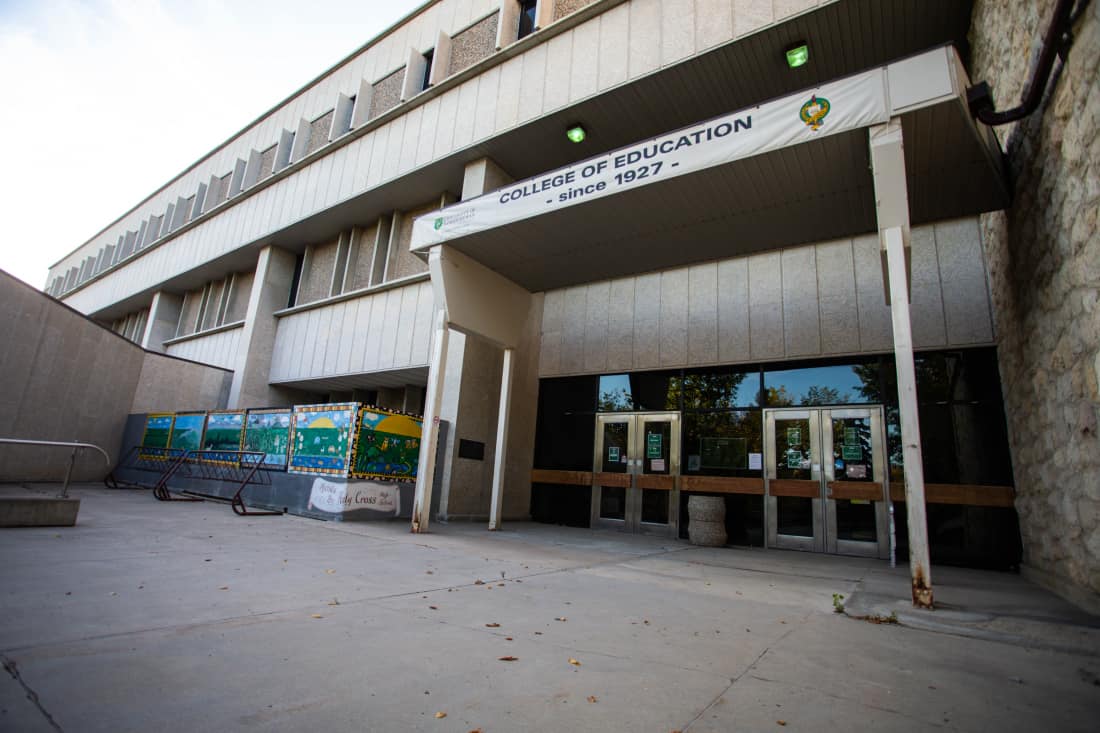
An open letter penned by alumni of the University of Saskatchewan College of Education is seeking the replacement of the college’s administration, alleging that the present leadership has created a “racist and toxic environment.”
The letter primarily raises concerns about racism directed at Indigenous staff, faculty and students. It also includes concerns surrounding unethical and nepotistic hiring practices and limits to academic freedom. The organizers hope to address “a climate fear,” within the college, which they say has silenced people who have voiced critiques in the past. Several Indigenous faculty members that have left the university in recent years have cited similar concerns as the reason for their departure.
Sheelah McLean, one of the organizers behind the letter, says that these issues are not new at the college. McLeans says that over the past three to four years, she has heard concerns related to poor treatment of staff, unethical behaviour and practices, and a lack of support for Indigenous and anti-racist education.
“My understanding from my colleagues that are still working there is that there were formal complaints made to the president’s office over the last three years, and basically nothing was done,” McLean said.
McLean says that the concerns raised in the open letter are things that have impacted the college negatively in recent years.
“All the progress and hard work done over decades in that college was being ground to a halt by this new leadership,” McLean said.
Since the alumni group released the document, there has been no changes to the administration at the college. This response was not a surprise to McLean, who says that the university has had enough time to prove what is important to them, and that it is not Indigenous education.
McLean says that the administration has affected education in the province for multiple years and how this has negatively impacted education on primary and secondary schools.
“Look at how many students they’ve affected in six years. That is a huge impact [in the] context of education in Saskatchewan,” McLean said. “What teachers are going to be learning, what they see as important, the kind of knowledge that they have and what they’re passing to their students… It’s really problematic.”
Melissa Just, U of S interim provost and vice-president academic, responded to the issues outlined in the letter in an email to the Sheaf. She says that “leading real change is hard” and highlights what the college and the university have already accomplished in these areas.
“The College of Education is a national leader in Indigenous education programming,” Just said. “The president, the vice-provost Indigenous engagement and I have had very constructive meetings with faculty association representatives, as well as faculty members in the college, to discuss and explore the points recently raised regarding Indigenous faculty.”
Just says that the university acknowledges the necessity to have conversations about the concerns that the letter outlines, and plans on having discussions with all staff and faculty in the College of Education. As of Sept. 30, the letter had thirteen pages of signatures.
“Indigenization is one of the U of S’ top priorities, and is core to our University Plan. We know there is always more to do and we remain committed to doing more,” Just said. “We also remain committed to maintaining our strong track record of significant investment in Indigenous programming, Indigenous student support and in Indigenous faculty.”
Jaris Swidrovich, an Indigenous professor in the College of Pharmacy and Nutrition and a signatory of the open letter, says that aside from the university’s response so far he is “hopeful to witness an investigation, apologies, and actionable commitments to change.”
“I would like to see stronger accountability for acts of racism and discrimination that are followed up with appropriate consequences for individuals and/or units at fault,” Swidrovich said.
—
Kienan Ashton
Photo: Nicholas Saretzky
Leave a Reply